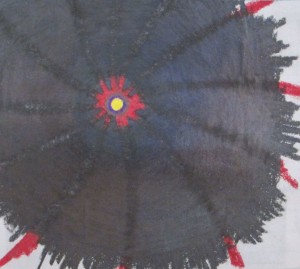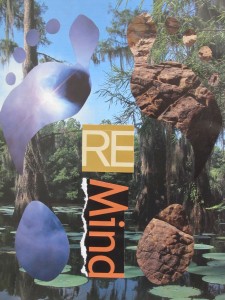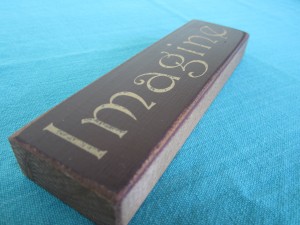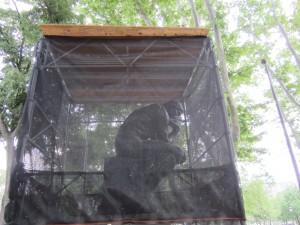
It has never been my intention in my writing to enter the political fray. I prefer to draw people’s attention to the life of mindfulness, compassion, and wonder. But the recent uproar about the comments of Rep. Todd Akin regarding rape has prompted me to make an exception to my norm and say a word or two.
I can understand why Mr. Akin’s comments have offended, incensed, and wounded so many people. Along with millions of women in this country, I, too, have experienced rape, and Mr. Akin’s beliefs about rape and pregnancy reveal a profound level of ignorance and insensitivity on his part. Others have written eloquently and powerfully about that, so I won’t go into it.
But as a former pastor, what I have found myself asking is why he and so many other devoutly religious people cling to beliefs that are simply erroneous. Why are facts so blithely tossed aside and ignorance so aggressively guarded?
I think to answer that question I need to look not at their political views or even ideology, but at their theology. I suspect that Mr. Akin’s belief that women can’t get pregnant from rape arises out of a firm belief that God will protect the righteous. God, in this worldview, is the Intelligent Designer and therefore “He” must have built into women’s anatomy a protection mechanism against the catastrophe of pregnancy resulting from rape. God, in this worldview, is omnipotent, just, and good, therefore, if bad things happen it must be because the person had it coming to them.
It is a simplistic, Pollyanna theology that simply refuses to accommodate itself to the very real facts of oppression and cruelty. Rather than facing the hard challenges that theodicy presents, this theology skirts the issue by blaming suffering on those who suffer. It may well be that Mr. Akin and those who hold similar viewpoints aren’t simply trying to prevent unwanted fetuses from being aborted. They are trying to protect their understanding of God.
This understanding of God, however, is not a Judeo-Christian understanding. The book of Job, perhaps the most ancient piece of writing in the Judeo-Christian canon, addresses this very issue, and it is unwaveringly clear: bad things happen to good people; God does not necessarily protect the righteous.
If Job had been written with a woman protagonist, one of the horrors visited upon her may very well have been rape, with the compounding catastrophe of a resulting pregnancy, and her friends would have tried to convince her that she must have done something wrong or this never would have happened, or that perhaps her rape wasn’t really legitimately rape or she wouldn’t have gotten pregnant.
Jesus, too, challenged those who would blame suffering on the victims, and of course his own crucifixion at the hands of the Roman Empire was a graphic display of the truth that God doesn’t protect the righteous. The conventional Christian resolution of this dilemma has been to claim that, instead of protecting those who suffer, God suffers with them, which is the literal meaning of compassion, something that has become tremendously lacking in the politics of our day.
Anyone who advocates for the idea that this should be a Christian nation would, by definition, have to have compassion — suffering with the suffering — at the centerpiece of their political platform.
I was fortunate. I didn’t get pregnant. But it never entered my mind that if I had I would have been forced to carry the fetus of my rapist in my body. Such a sentence was unthinkable, unconscionable, and the belief that such cruel and unusual punishment should be written into the Constitution, as some would like it to be, is abhorrent to me. Whether or not a woman seeks an abortion in such circumstances is not Rep. Akin’s decision, nor any other politician’s, to make. It is hers, and hers alone.
But there is something else that has been present in my mind these last few days. It is a memory I carry with me from a time, several years ago, when I was on spiritual retreat.
I was walking the labyrinth one day and a message came to me saying: “Release all concept of enemy.” It was a revelation, because it was telling me that “enemy” is a concept I hold, a frame of reference in my mind, not something inherently real. Since then I must have taken the teaching to heart because, even though I vehemently disagree with Mr. Akin’s stance and I do not want him to be in a position of political power nor his beliefs codified into legislation, I have been unable to see him as an enemy. In an odd way, I can even sympathize with him. I can understand his desire to live in a world where things make sense, where complexities, such as abortion, can be boiled down to simple absolutes, where rape and other such atrocities can be explained away. That is not the world we live in, but the point I want to make is that I see him as someone not entirely dissimilar to myself, someone who, like me, wants his life to have meaning and needs something to believe in, a human being who is not more and not less than any other.
If I want him to do the hard work of wrestling honestly with the suffering of others and the complexities it presents, I must be willing to do the hard work that my beliefs demand of me: recognizing that we are all members of one human family. His name itself places the challenge before me: to see him as a kin.





